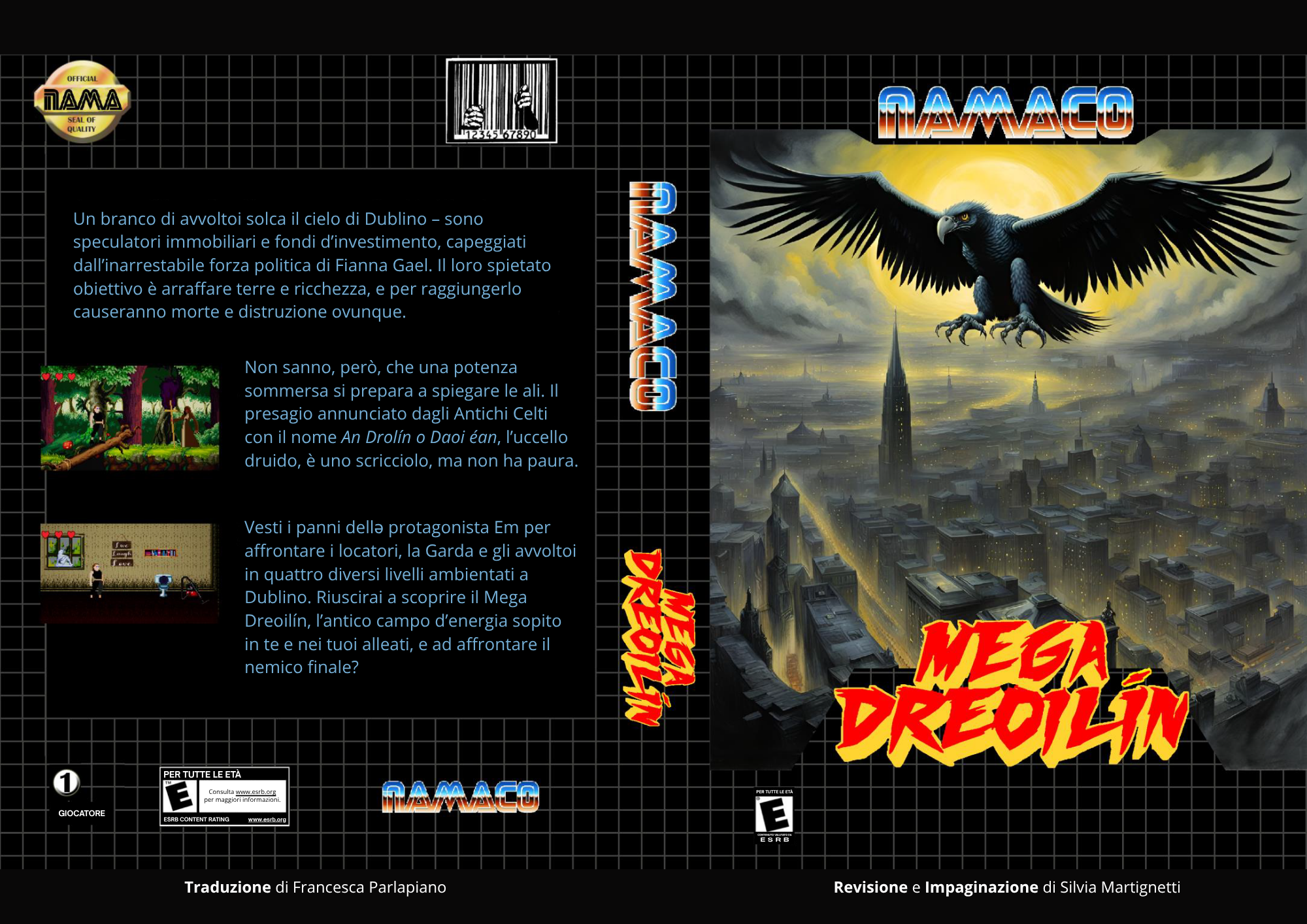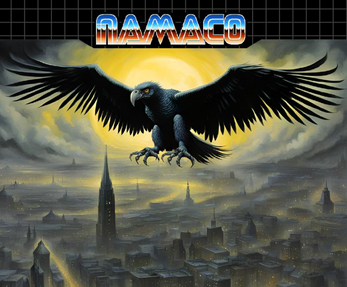Mega Dreoilín - IT Localization (Zine&Script) by LemonLoc
A downloadable book
Italian Localization by LemonLoc (Francesca Parlapiano and Silvia Martignetti)
Mega Dreoilín: A masterclass in localization and transcreation

Mega Dreoilín is the type of challenge that anyone working in the localization field should face at least one, to test and refine their skills. It is a game with a strong identity, rooted in nationality, politics and culture - an identity that one could deem controversial, but that should not be toned down to become more "appealing" nor "digestable."
Mega Dreoilín is Irish. Not simply as a matter of where and by whom it was created: Ireland, and the city of Dublin more specifically, plays a central role in shaping the story and the beliefs of its plot. While the issues tackled by the story (the housing crisis and the collapse of the capitalistic system) are shared with basically the whole world, the perspective in which these are analyzed is rooted in Irish history, culture and folklore. To share this identity with a new public means to explain the foreign without stripping it of its characteristics - whether it involves the important role of the Taoiseach or a simple but delicious spice bag.
Mega Dreoilín is inclusive. The protagonist, Em, goes by they/them pronouns. It is a challenge well known in the space of Italian localization: being a language with declension but no neutral option, inclusivity is a question still left without a proper answer. In the last years there have been many suggestions to add a new suffix for the neutral; some have become pretty popular (like the schwa or the asterisk), others were quickly deemed as unusable - but none of them has become institutionalised, because language is inherently a political matter and, for some reason, apparently so is being queer. As translators, we are used to being asked by our clients to avoid gendered speech to make everybody feel included, but without using these experimental suffixes to not take an explicit political stance that could push a certain demographic away. But Mega Dreoilín is unapologetically political and inclusive, and we did not have to think for more than one second to know that the authors would have used the neutral suffixes if they were Italian.
Mega Dreoilín is educational. In the zine there are reviews of the game that are written in strictly academical terms, and that as such needed to be translated - but the game itself uses a more down-to-earth language, that tries to clarify concepts that are often perceived as difficult and out of reach. Several authors were involved in the project, each of them with their own patterns and vocabulary, but all of them with a strong drive to educate and spread information on difficult topics. Their stance is radical, revolutionary; we focused on their message and on the information they wanted to spread, transcreating rather than simply translating. It is especially hard for anyone used to working with video games and not academic texts, since the two genres here fuse and become an artistic project hard to define.
Mega Dreoilín is absurd. Landlords are made of mould and vulture funds are actual birds. This delightful absurdity is part of its charm, and the fun part that catches the attention of the player/viewer and makes them interested in a topic that could otherwise be deemed as heavy and/or boring. We hate to repeat ourselves (or maybe not, maybe we adore being redundant), but the translator cannot tone down this absurdity: it should be ambraced, maybe even amplified if the language allows it. The humor in the dialogues should be replicated not word by word, but by the overall feeling of weirdness and hilarity.
TLDR: Mega Dreoilín is a challenge. And a damn fun one.

Leave a comment
Log in with itch.io to leave a comment.